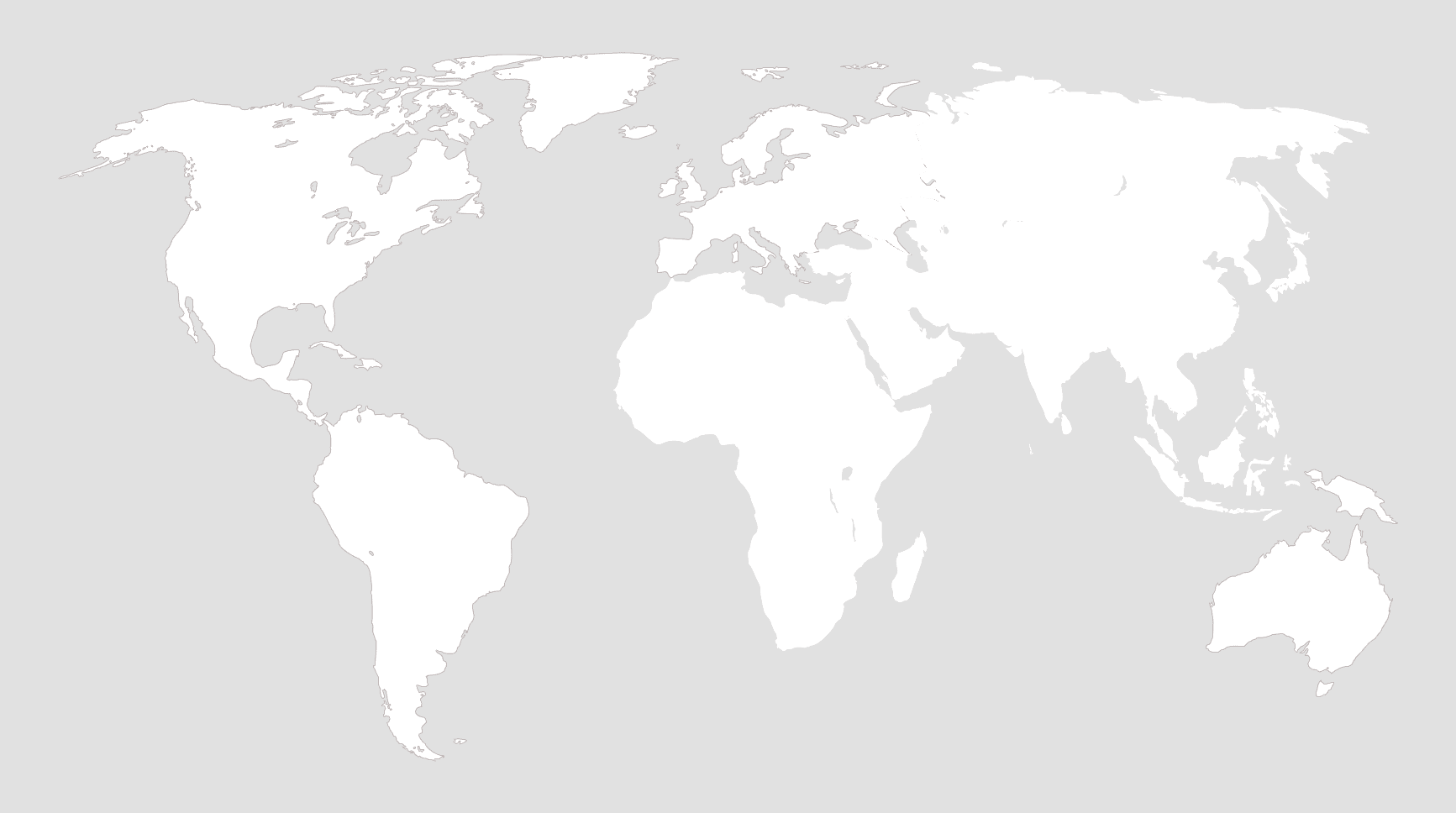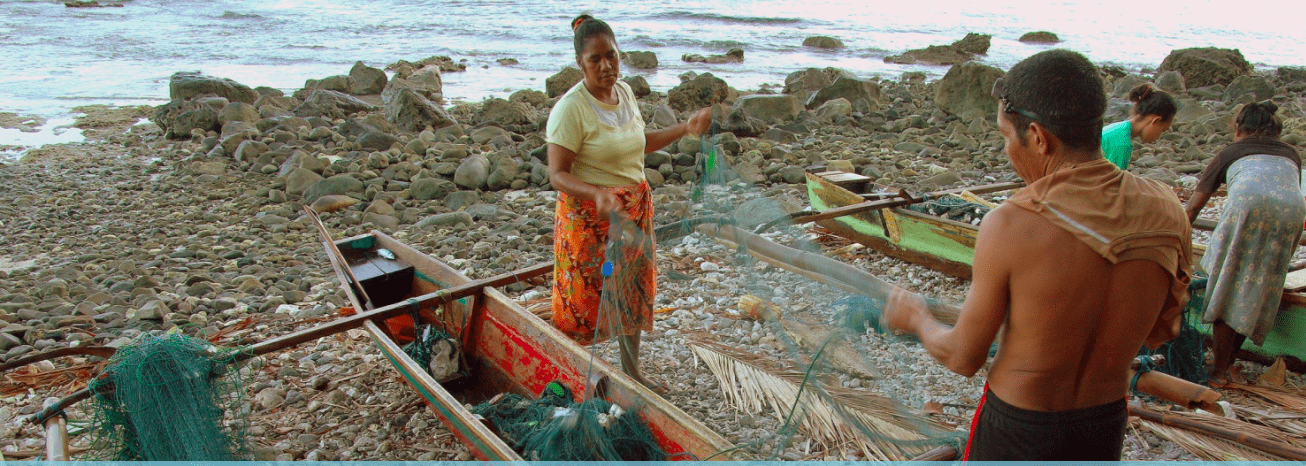Gender transformative approaches
CGIAR CONTRIBUTORS CGIAR Collaborative Platform for Gender Research, CGIAR Research Program Aquatic Agricultural Systems (AAS), FISH, GENDER, GENNOVATE initiative, WorldFish TYPE OF INNOVATION Biophysical science Genetic (v

- Innovation
Gender transformative approaches
International development programs and organizations are increasingly aware of gender disparities in food systems. Yet there is growing recognition that it is not enough for investments to treat the symptoms, such as the visible gender gaps, without looking at the underlying causes. For sustainable change to occur, the roots of gender-based inequalities must be addressed.
Since 2012, CGIAR scientists at WorldFish and their partners have spearheaded the conceptualization, testing, and scaling of gender transformative approaches within CGIAR and in aquaculture, fisheries, agriculture, and broader development sectors. This has included a focus on gender-equitable control over assets and resources including microcredit and processing technologies.
Instead of burdening women with the responsibility for equality, gender transformative approaches engage men and women together as agents of change
Where ‘business-as-usual’, accommodative gender approaches try to work around barriers, and are often women-focused, CGIAR’s gender transformative approaches have broken new ground by engaging with and transforming structural barriers, in particular constraining gender norms. The approaches are operationalized through context-appropriate, locally led and constructive strategies.
Instead of burdening women with the responsibility for equality, gender transformative approaches engage men and women together as agents of change. As such, the aim is for women and men, from the household scale to the community and beyond, to shift constrictive gender norms and other structural barriers that underpin the persistence of inequalities in aquatic and land-based food systems. In this way, transformative approaches complement existing work, yet represent a significant transition forward.
This is critical to enabling CGIAR and partners to tackle the root causes of gender inequalities, rather than address only the symptoms, and contribute to a transition toward more inclusive, equitable, sustainable, and resilient food systems.
Header photo: Tilapia fingerlings being brought at the NARDC aquaculture ponds in Kitwe, Zambia. Photo by D. Huso/WorldFish.
Links & further reading
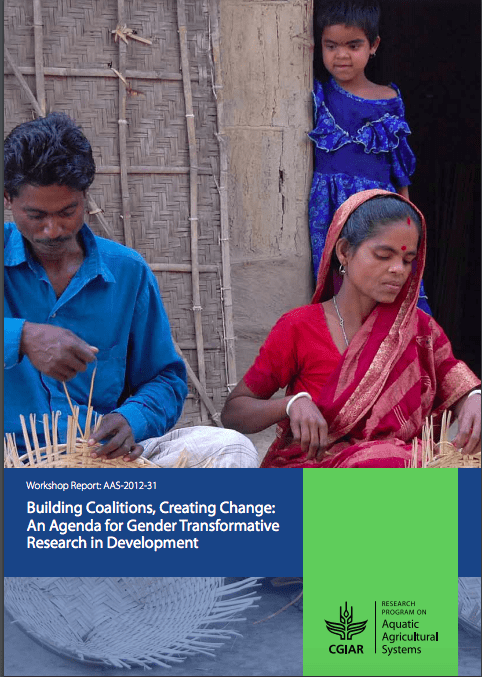 Workshop report: Building Coalitions, Creating Change: An Agenda for Gender Transformative Research in Development
Workshop report: Building Coalitions, Creating Change: An Agenda for Gender Transformative Research in Development 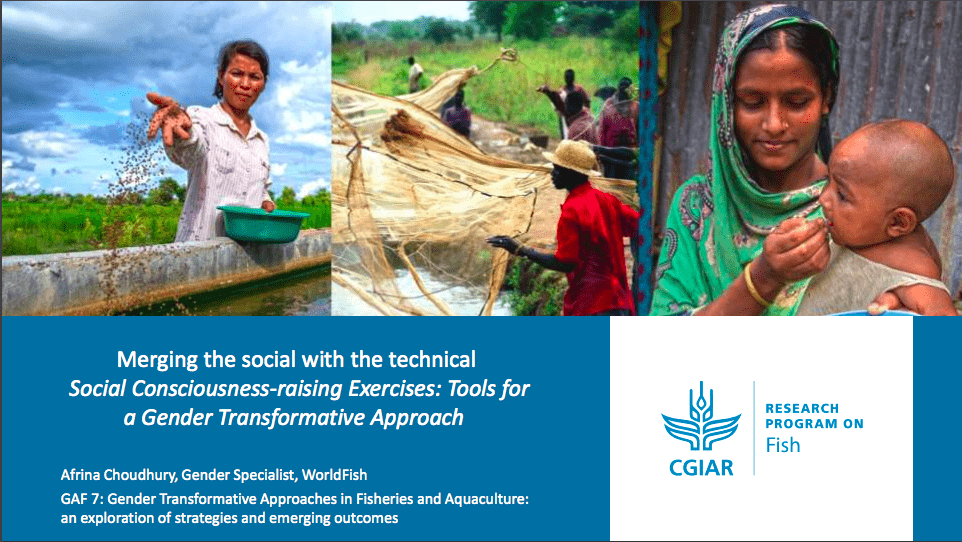 Presentation: Merging the social with the technical: Social Consciousness-raising Exercises: Tools for a Gender Transformative Approach
Presentation: Merging the social with the technical: Social Consciousness-raising Exercises: Tools for a Gender Transformative Approach  Working paper: Collaborative effort to operationalize the gender transformative approach in the Barotse Floodplain
Working paper: Collaborative effort to operationalize the gender transformative approach in the Barotse Floodplain 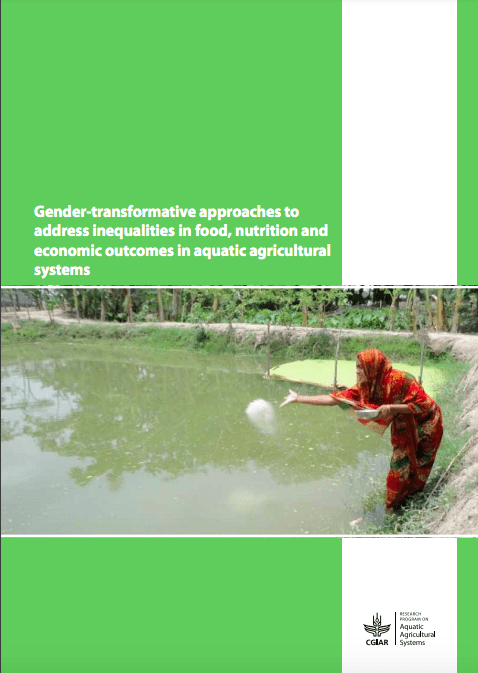 Working paper: Gender-transformative approaches to address inequalities in food, nutrition and economic outcomes in aquatic agricultural systems
Working paper: Gender-transformative approaches to address inequalities in food, nutrition and economic outcomes in aquatic agricultural systems 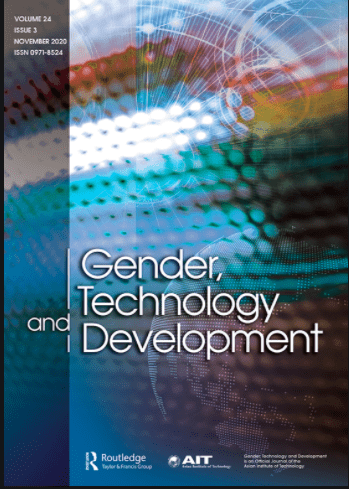 Publication: Gender Accommodative Versus Transformative Approaches: A Comparative Assessment within a Post-Harvest Fish Loss Reduction Intervention
Publication: Gender Accommodative Versus Transformative Approaches: A Comparative Assessment within a Post-Harvest Fish Loss Reduction Intervention 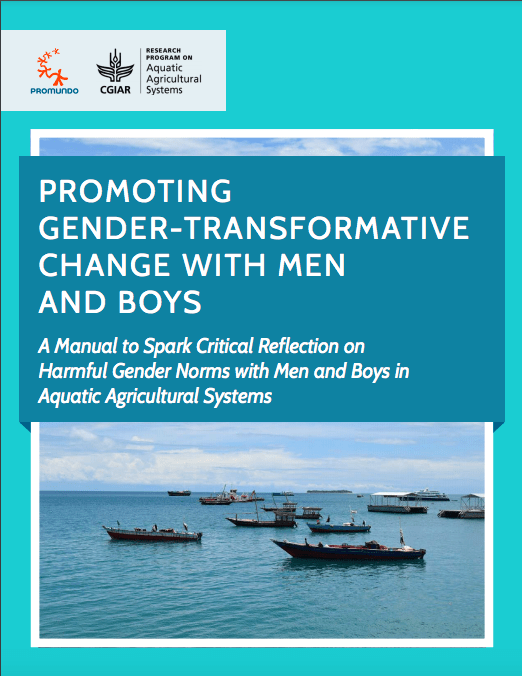 Manual: Promoting gender-transformative change with men and boys: A Manual to spark critical reflection on harmful gender norms with men and boys in Aquatic Agricultural Systems
Manual: Promoting gender-transformative change with men and boys: A Manual to spark critical reflection on harmful gender norms with men and boys in Aquatic Agricultural Systems 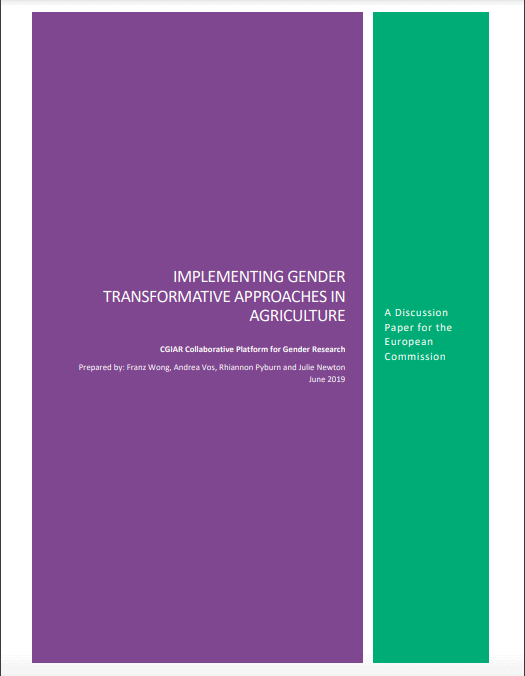 Discussion paper: Implementing Gender Transformative Approaches in Agriculture: A Discussion Paper for the European Commission
Discussion paper: Implementing Gender Transformative Approaches in Agriculture: A Discussion Paper for the European Commission 

